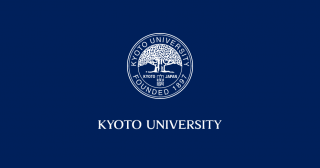From 5 through 18 March, the Graduate School of Advanced Integrated Studies in Human Survivability (GSAIS, or "Shishu-Kan") held the Kyoto International Spring School for Future Global Leaders, a Kyoto University Wild & Wise Collaborative Learning Program. Five master's and doctoral students — one each from Brown University (USA), the Graduate Institute of International and Development Studies (Switzerland), Macquarie University (Australia), Leibniz University of Hannover (Germany), and the University of Regina (Canada) — enrolled in the two-week program as short-term exchange students, attending lectures and other activities alongside nine peers from Kyoto.
The Spring School was aimed at developing leadership knowledge and skills needed to resolve global issues, as well as to cultivate an understanding of Japanese culture and multicultural sensitivity. The curriculum featured lectures by Shishu-Kan faculty on ongoing global challenges as well as possible solutions and countermeasures. Each lecturer addressed these topics from a unique perspective, with Professor Yosuke Yamashiki focusing on the preciousness of planet Earth, Associate Professor Hiroaki Isobe on humanistic studies of outer space, and Associate Professor Marc-Henri Deroche on the philosophy of the mind.
The program also introduced the students to the essence of Japanese culture, through activities such as Zen meditation and samu (cleaning of the backyard garden) at Nagaoka Zen Juku in Nagaoka, Kyoto, and flower arrangement at Ikenobo, the best-known school of ikebana .
Last but not least, in addition to attending lectures on leadership, the students worked in groups to design activities and materials for primary schools that would stimulate an interest in global issues. This and other hands-on sessions helped everyone gain a personal understanding of global leadership.
The Spring School concluded with participants sharing what they had learned through the program. Everyone expressed deep appreciation and gratitude for the experiences gained, and agreed that studying Japanese culture helped them recognize the importance of cross-cultural understanding for the foundation of global leadership. They also learned, they said, that solving global issues will require the wisdom and cooperation of diverse individuals as well as shared leadership.

Lecture by Associate Professor Deroche

Zen experience at Nagaoka Zen Juku

Ikebana practice at Ikenobo Kaikan

Workshop for students from Daiyonkinrin Elementary School
Related link
- The Kyoto University International Spring School for Future Global Leaders Program Articles
https://www.gsais.kyoto-u.ac.jp/blog/2018/03/06/20180305-18-3 - Wild & Wise Collaborative Learning Programs (2017-2018)
http://www.kyoto-u.ac.jp/en/education-campus/education_and_admissions/non-degree-programs/international-education-initiatives/2017-2018.html





